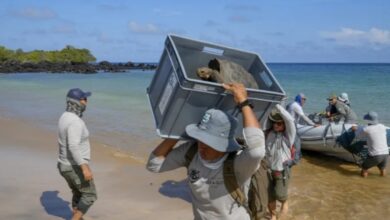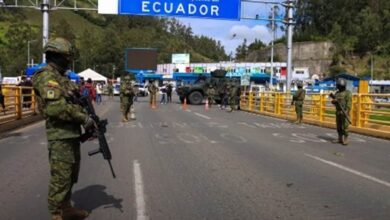Bukele’s Policies Are Transforming El Salvador’s Security Crisis

President Nayib Bukele’s time in office has brought fewer killings in El Salvador. His bold actions fight against gangs. Some people find these actions controversial. However, these steps are necessary. They bring peace and security to the country.
El Salvador’s Progress Is Measurable
El Salvador is changing a lot under President Nayib Bukele in a country once troubled by widespread violence. Official numbers from the National Police obtained by EFE show that between January 1 and December 15 of this year, the country had 106 murders. This is a significant drop from the 148 recorded during the same period in 2023. The decline shows how good the government’s plan for controlling areas is. Taking decisive steps against organized crime is very important.
El Salvador’s murder rate hit 103 per 100,000 people in 2015. That year was very violent. The level of violence was extreme. The situation required a significant change. The decline began before Bukele’s presidency but has accelerated since his administration took office in 2019. His government’s approach — a combination of territorial security strategies and a controversial state of emergency — has undeniably yielded previously thought impossible results.
Critics say that suspending rights during the emergency harms freedom. Human rights groups worry about unfair arrests and mistreatment. Yet, the question is clear꞉: What option did a country have when gangs had weakened it? The steep drop in homicides demonstrates that Bukele’s policies have not only worked but are reshaping the country’s future. For too long, fear ruled the streets of El Salvador. Today, security has returned for many, and that matters.
Tough Policies Were Necessary to Break the Cycle
El Salvador faced a serious security problem that needed fundamental changes, not just empty words. Gangs like Mara Salvatrucha (MS-13) and Barrio 18 controlled many areas of society, overseeing neighborhoods, businesses, and families. They acted almost without punishment, demanding money and committing violent acts while spreading fear everywhere.
President Bukele’s action – a state of emergency started in March 2022 – marked an important change. The emergency steps allowed leaders to pause some constitutional rights, giving security forces the power to fight gang actions vigorously. Critics call these steps harsh, but they have been effective.
For years, gang violence was a reality that Salvadorans could not escape. People stayed silent due to threats, families broke apart, and businesses struggled under the pressure of extortion. Bukele’s strong focus on security shared a clear message꞉: Lawlessness would not be accepted anymore.
The territorial control plan, coupled with the state of exception, enabled security forces to dismantle gang operations and reclaim areas long abandoned to criminal rule. Today, Salvadorans walk the streets with new-found confidence. Children go to school without fear of violence. Shopkeepers no longer look over their shoulders. These feel like simple freedoms to outsiders. In El Salvador, they signify a considerable achievement.
Critics Must Acknowledge the Results
Critics of Bukele’s policies often worry about their strict approach. Worries about human rights issues are really important and should not be ignored. Transparent and honest government actions are necessary for any democracy. But it’s also important to understand that unusual crises need unusual solutions. El Salvador’s security problem was severe.
The government did not count some deaths – like gang members killed by police – in the official murder numbers. This decision caused doubt among people. But even with these changes, the drop in violent deaths is very noticeable and should not be overlooked. Independent analyses and firsthand Salvadoran accounts affirm that security has improved significantly under Bukele’s leadership.
Critics, particularly in international circles, often fail to understand Salvadorans’ lived reality prior to these reforms. Gang dominance was not an abstract concept—it was a suffocating presence in daily life. The world community needs to avoid trying to force outside ideas on a country that needs decisive actions to stay alive. Bukele’s ideas, even though not perfect, brought hope and peace to chaos.
El Salvador’s story shows a path for other countries with similar issues. Safety serves as the foundation of success. Without safety, progress in money, education, and community stays distant. Bukele’s leadership focused first on safety to encourage more significant changes. The results are apparent.
Ensuring Long-Term Success
El Salvador has made undeniable progress, but Bukele’s next steps will show if these successes hold up. Strict rules reduce crime, but ending gang violence forever needs fixing the real problems behind it. Reforming schools, jobs, and social help will be key to stopping gangs from coming back. The need for long-term solutions is clear, and Bukele’s commitment to this is crucial.
Bukele’s team needs to invest in young people in El Salvador. Young individuals often face gang threats. School programs, job training, and business projects offer alternatives to crime. El Salvador should provide paths to jobs and success. Young people need to stay away from gangs.
Clear rules and changes in the justice system should support security actions. The current emergency state helped, but it should only last for a while. Restoring rights and strengthening laws balance safety and freedoms. Bukele’s big challenge is shifting from quick solutions to lasting, fair rules that uphold the law.
The fight against corruption is very important! In the past, corruption has hurt El Salvador’s safety plans. Security forces need to work honestly to build people’s trust. Bukele’s success may depend on creating a fair society without harsh rules to keep calm.
Bukele’s Leadership Offers a New Model
President Nayib Bukele’s approach to dealing with El Salvador’s security problem is brave and effective. He uses strict rules, even when people criticize him. These actions bring real change to a country once known for violence. For the people of El Salvador, fewer killings mean more than just a statistic. It means a renewed sense of dignity, freedom, and hope. It’s a beacon of light in a previously dark situation.
His leadership proves that strong and clear steps stop crime and fear. Problems remain, but progress in El Salvador gives helpful ideas to other nations with similar troubles. Security is not just a priority, it is a fundamental right. Bukele reminds the world that governments must protect citizens and sometimes need bold moves for peace.
Also Read: El Salvador’s Bukele Announces Dismissal of 300 Public Employees to Save Funds
As El Salvador progresses, it should focus on education, jobs, and honesty for long-term success. For now, Bukele’s policies have given Salvadorans something they had nearly forgotten — a sense of safety and the promise of a better future. It is a victory worth defending.





